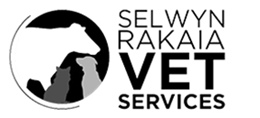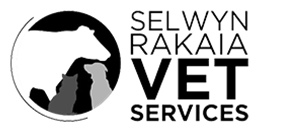In the last 20 years there has been a strong expansion in herd size on dairy farms in the Canterbury region. With the increased numbers of cows on farm lameness has become more prevalent. There is still a significant problem of under-recording of lameness and under-estimating its importance and control. Current lameness figures on farms range from 10–25%.
We are all aware of the importance of lameness control however many farmer’s under estimate the true cost of each case of lameness. The cost of each lameness case is now estimated at $300 - $350 for milk loss alone. Lame cows also have lower fertility. When we factor in treatment costs and the farmers time the final cost can be close to $500.
For an average herd size of (700) a 10% lameness level will costs the farm $35,000 per annum.
Our services
Routine Lameness investigations
We offer gold standard hoof trimming and treatment for lame cows. Our vets all use the ‘5 step Dutch technique’ for functional and corrective foot trimming. We see excellent results in cows we treat on farm. If you have lame cows that need our attention don’t hesitate to call.
On farm Staff Training
To help farmers learn the proper foot trimming procedures we now offer a Lameness Demonstration Workshop. We can carry this out on farm and the course will take 1-2 hours depending on the number of cows presented. We will demonstrate the '5-step Dutch technique' for foot trimming, show you different methods of blocking feet and also treatment protocols. We urge all our farmers to make use of this service as a beginner’s course or refresher course for you and your staff.
Lameness Consults
For a whole farm review we suggest a full lameness consult. This includes assessment of the track, the shed, cow handling during milking, and treatment protocols. We will also carry out locomotion score testing for all your cows to give an overall herd average and also identify cows that will require investigation.
Some Tips
Here are some basic steps to minimise lameness in your herd:
- Know when to call us. Some lesions need Veterinary attention; it’s better to have it dealt with early than to have to cull the cow later in the season.
- Hoof trimming. Early identification of lame cows is the key to early recovery. Early intervention will minimise the damage caused by the lameness problem.
- Having your staff trained by one of our vets so that they are competent and confident will make a huge difference to lameness on your farm.
- A basic requirement is a dedicated crush for foot trimming cows. Without the proper handling facilities it can be difficult to handle your cows individually ensuring the cow is comfortable and you are safe! We all have seen cows (and farmers) with severe injuries due to poor handling facilities. A number of clients have said that they or their staff have not been shown how to trim cows feet properly.
- Review your tracks. Ensure you are using the right material for both the base and top layer. Check and remove congestion points such as sharp corners, narrow points or other factors causing cows to back up. The tracks should have good drainage and an 8% crowned surface.
- Shed design. Having smooth cow flow onto the platform and through the shed is crucial. Speak to one of our vets about whether your shed needs to be modified to improve flow.
- Cow flow. Pushing cows too hard on the tracks, so that cows are lifting their heads up and cannot see where they are placing their feet will lead to hoof damage. Over-use of the backing gate or packing cows in too tight on the platform results in twisting of the foot and pressure on the hoof edges. This is a common cause of white line disease.
All Selwyn Rakaia Vets are trained in the area of lameness. We ask our clients to be proactive when they see an increase in the number of cases. Do not hesitate to organise a lameness consult with a member of our team.


